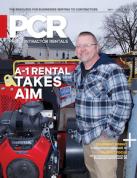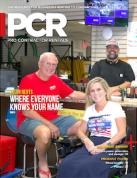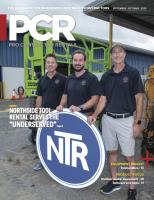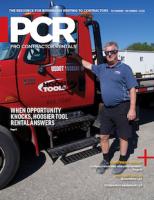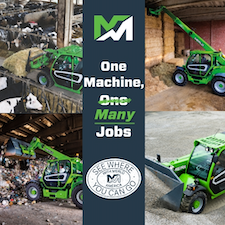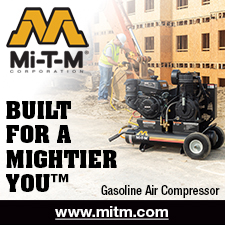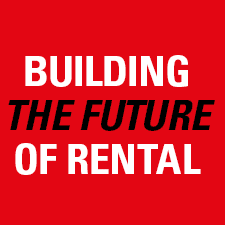How to insure your rental equipment business
Renting out equipment often requires heavy-duty coverage. Sentry Insurance offers these helpful tips to reevaluate what insurance you should hold to help secure the future of your business.
by Jeff Willoughby
Offering rentals at your equipment dealership comes with unique challenges, from the risk of physical damage to your equipment to keeping confidential customer data secure. Challenges like these affect which types of insurance coverages your business should have in place. We’ve compiled some key considerations to help you protect your dealership’s main assets—including your equipment and technology—and help keep your employees safe.
Loss damage waivers
As a business that rents equipment, you may offer customers a loss damage waiver (sometimes called a physical damage waiver or rental damage waiver). These agreements usually assign your dealership responsibility for certain physical damages to equipment throughout your customer’s rental period. This limits the customer’s financial responsibility and helps give them peace of mind while renting your equipment.
But there’s a catch. You need to ensure you have the proper insurance policies in place to help protect not only your customers, but also your business if your equipment is physically damaged within a rental period. Insurance helps protect your equipment and gives you and your customer financial peace of mind.
With the right insurance coverages, your dealership can agree to a loss damage waiver and still be protected from covered losses. Because loss damage waivers still leave your business with some risk, it’s important to:
- Assess the terms of the physical damage waivers you offer, so you understand both parties’ financial responsibilities in the event of a loss and how to recoup potential losses
- Acquire certificates of insurance from the customer to help ensure you won’t be held liable for customers’ losses outside of physical damage (such as bodily injury)
- Ensure your primary insurance policy covers all equipment you intend to rent
By pairing the right insurance with your loss damage waivers, your dealership can help cover its bases when faced with a loss.
In cases where your dealership doesn’t offer loss damage waivers, confirm that the customer’s insurance policy includes both loss damage and general liability coverage, and have the customer list your dealership as an additional insured.
Representing a foreign manufacturer’s equipment
We find that dealerships often don't properly insure foreign-built equipment. If your dealership rents out equipment from a foreign manufacturer, you may be liable for bodily injury or property damage caused by a product defect if the original manufacturer doesn’t have the proper coverages through its insurer.
If you allow your customers to rent equipment built in other countries — 0or are looking to expand your offerings with such equipment — plan ahead. Ensure the manufacturer has the proper documents, agreements, and U.S. coverages in place.
Cyber security
Businesses across a range of industries increasingly rely on technology for daily operations. As a rental business, you likely use services such as online booking and digital customer payments. This makes planning a cybersecurity strategy even more essential. According to the Identity Theft Resource Center, data breaches have increased throughout 2021, with a 38 percent increase in Q2 over Q1 alone. These breaches compromise customers' and employees' confidential information, along with critical business operations software like payroll and inventory management. To help protect your information, reduce the risk of a breach, and mitigate the consequences if you face one, take the following steps:
- Identify sensitive data: Keep a close eye on how and where you maintain Social Security numbers and driver’s license names and numbers, as well as proprietary business information and financials.
- Back up data: Ensure critical data is duplicated to a separate storage site, ideally offline or in a secure, reliable cloud-based solution.
- Get a second opinion: Hire a cybersecurity expert to check hardware and software systems to ensure the strength of your encryption and authorization protocols and employ new ones if necessary.
- Protect your systems: Block potential attacks by implementing firewall settings to counteract malicious IP addresses and ensure your antivirus software is up to date.
- Educate employees: Reinforce security by teaching your team how to identify and delete potential scam emails and malicious attachments, and how to strengthen their device and account passwords.
- Scan your database: Monitor your systems for old malware that could potentially enable future security breaches.
Even if your dealership takes proactive security measures, it’s still important to anticipate the unexpected. After all, your rental customers’ data is at risk. Maintaining cyber liability insurance coverage can offer another level of protection if your business experiences a cyberattack.
Commercial auto liability and driver safety
If your dealership transports or delivers rental equipment, the safety of your assets and employees on the road should be a top priority. As with any of the protections addressed here, staying proactive from the outset—in this case, hiring high-quality drivers and setting high standards for road safety training—is your best first line of defense in protecting your business.
When hiring drivers to deliver your equipment or perform other business duties out on the road and in company vehicles, take special care during the screening and interview process. Be sure to review each applicant’s:
- Job application: Require the applicant’s driver’s license number and expiration date.
- Interview and references: Verify the applicant’s relevant experience and discuss any accidents or violations on their record. Also discuss your company’s vehicle safety policy and any questions the applicant may have regarding your terms or practices.
- Motor vehicle record (MVR) and driving test: Examine their personal driving history since it can indicate future performance. If you find their record satisfactory, have your applicant perform the necessary driving maneuvers for your vehicles and routes. Take notes and make sure their practices
Preparing the drivers you hire with a high-quality safety plan is the next step. Adequate safety plans should include effective vehicle management guidelines and procedures regarding defensive and distracted driving, seatbelts, and crash and incident response.
If you haven’t yet established a safety plan, begin by:
- Setting specific safe driving objectives and policies for workers who use company-owned vehicles
- Prohibiting employees from using company vehicles for personal use
- Communicating your interest in safety to all your employees through personal interviews, letters, memos, or bulletin board notices
Once you’ve established a safety plan, annually reevaluate its effectiveness, and make sure to update as necessary. You may also want to consult your local expert or attorney for assistance if your business or safety procedures have changed.
Maintaining the right coverages for equipment and employees on the road can protect your bottom line, so consider and discuss with your insurance provider the levels of collision, liability, and comprehensive coverage that will best protect your business and employees in the event of a loss.
Owning a dealership that rents equipment to other parties requires foresight to adequately protect your equipment, your business and customer data, and your team on the road. Talk to your insurance provider about how to protect your business—and its most significant assets.
-30-
About the author:
Jeff Willoughby is the director of large accounts for the Direct Writer business unit at Sentry Insurance. Sentry provides property, casualty, and retirement products to equipment dealers and businesses. Learn more at sentry.com.




